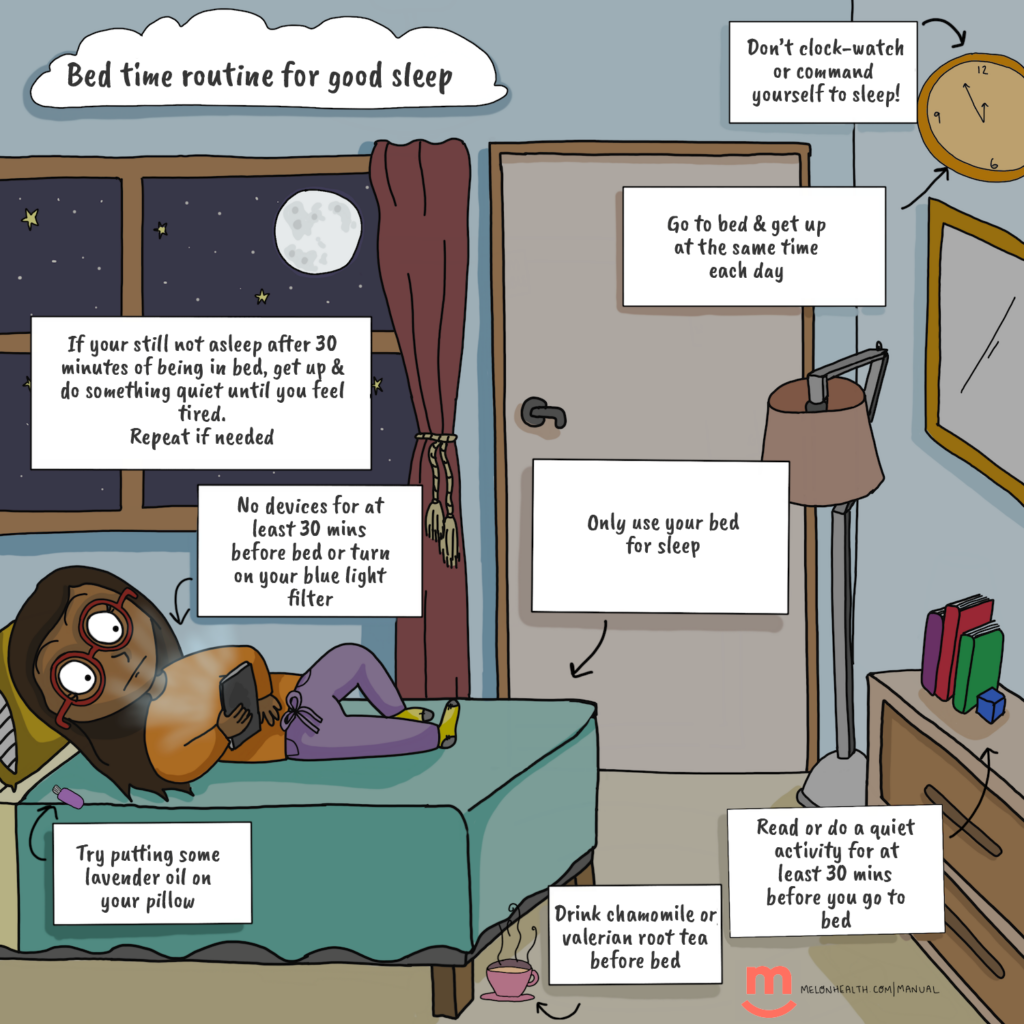Good sleep can greatly improve your quality of life, promoting physical and mental wellbeing. Check out these strategies to sleep better.
Almost everyone has trouble getting to sleep every now and then, but for some people, particularly those experiencing a lot of stress, this can become an ongoing problem. Troubles with sleep not only cause you to feel tired, but can also really negatively impact your day to day functioning and health.
Learning ways to manage sleep difficulties can greatly improve your quality of life.

I’ll never get to sleep
I woke up in the middle of the night or early morning and feel awake, so I will not be able to fall back to sleep.
I can’t function without sleep.